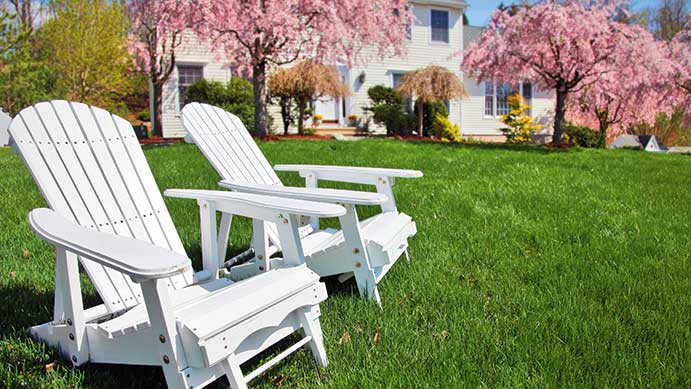The couch surfing concept has come a long way since its humble and free beginnings. The explosion of the internet and the subsequent advent of websites like Airbnb mean that as travellers, we have more accommodation options at this moment in history than ever before, and home swapping is flavour of the year.
If you’re familiar with director Nancy Meyers’ 2006 film The Holiday, you might think you have a pretty solid idea of how exactly home swapping works. In reality, that film really only depicted one type of home swap – indeed, home swapping can roughly be broken down into three main types.
The first type of home swap is what was depicted in Meyers’ film, known as a simultaneous exchange. It demands little explanation: you stay at their place, they stay at yours. Alternatively, there’s non-simultaneous home swapping – for example, if the other home swapper is fortunate enough to have a holiday home or a second home, you might stay there, leaving your own house unoccupied. Thirdly, if you’re open to it, is the option of staying in the other person’s home while they remain on the premises – it could be called hospitality exchange. Home swapping isn’t limited to homes either – vehicles can be included in the exchange, and renters can also participate in the exchange.
The cost of long term accommodation, as with Sydney, was becoming prohibitive so this is why we began to investigate home swapping.
The indisputably popular home swap website Airbnb allows users to sift through thousands of homes, offering all three types of swaps. Choices all boil down to personal preferences and the purpose of the home swap, whether it’s for a swift two-night stop or a leisurely two-month escape. Naturally, staying in a relative stranger’s home has its controversies. Plenty of people swear by Airbnb, which requires no joining or membership fee, raving in detail about the culturally-rich and comfortable experiences they’ve had, with or without their host’s presence. On the other hand, the very concept of Airbnb, which involves trusting strangers, combined with the few, but often highly publicised horror stories, have led many of us to keep our sights firmly set on the Hiltons and the Hyatts of the world.

Perhaps in order to capture the attention of those unaffected by Airbnb’s rise to the top, a noticeable number of paid membership home swap sites have appeared on both the domestic and international radar. The focal difference between tem and Airbnb is, that these targeted sites charge a fee, but as a result of this, members have greater confidence in their home swap selection, and are better able to trust that the people staying in their home won’t flood the bathroom, per se. It’s still recommended that you seek out reviews, naturally.
Sydney architect and home swapper Malcolm McDivitt elected to home swap with London-based company Love Home Swap, wherein members pay a monthly fee to engage in simultaneous swapping or hospitality exchange. Malcolm and his wife Ann-Maree have for three years offered a one-bedroom apartment with a private entrance they have attached to their house. They also have a holiday property in the Blue Mountains, expanding their options even further. Malcolm says family had a lot of sway in the reason they chose to start home swapping.
“Our sons were living and working in London and we were visiting them most years,” Malcolm explains. “The cost of long-term accommodation, as with Sydney, was becoming prohibitive so this is why we began to investigate home swapping. Having done it several times and with our sons returning home we have decided that as well as being economical it is a very comfortable and rewarding experience and we intend [to visit] other places in the world using this method.
“The decision to home swap was also influenced by what even t he most modern hotels can fail to offer. “We decided some time ago that we would avoid hotels when we travelled unless it was only for a night or two. One hotel, whether it’s 5-star or 2-star is fundamentally the same as another no matter what part of the world you are staying in and not being able to cook your own meals (whether regularly or just occasionally) is a real minus. Shopping in the local markets or supermarkets is one of the quintessential travel experiences.
So far, the McDivitts have home swapped exclusively in London, but it’s given them opportunities to explore Notting Hill, Kensington, Highbury, Islington and the East End in detail. Of the best experience they’ve had, Malcolm mentions Notting Hill. “The flat in Notting Hill which we have swapped on several occasions has been fantastic. It is the London ‘Bolthole’ for a professional couple who live in the Bahamas, quite beautiful and normally rented out for £2200/week, way out of our price range,” he says.

On the topic of home swapping disadvantages and risks, Malcolm is perhaps exactly what you might expect. “The only thing people need to be aware of is that not all people have the same idea of tidiness or cleanliness that you might have so don’t expect the place you are going to, to be perfect nor your place to be left in perfect condition,” he says.
“That said we have never had any problem. I would lock really valuable or sentimental items away mainly to guard against accidental breakage, but really people respect your property as they would expect you to respect theirs.”
Of course, changing the type of accommodation you choose to use can have a major impact on the overall way we feel about the destination, especially once we’ve been and gone. It can spark a desire to return time and time again, or it can spell goodbye forever. How has it changed the McDivitt’s attitude? “I think we’ve found that staying in suburban areas of big cities in peoples’ homes, going to the local shops, travelling on public transport, gives you a clear idea and puts you in touch with how people live and [provides] a deeper understanding of the local culture,” he says.
“Why wouldn’t you?”






















Add Comment